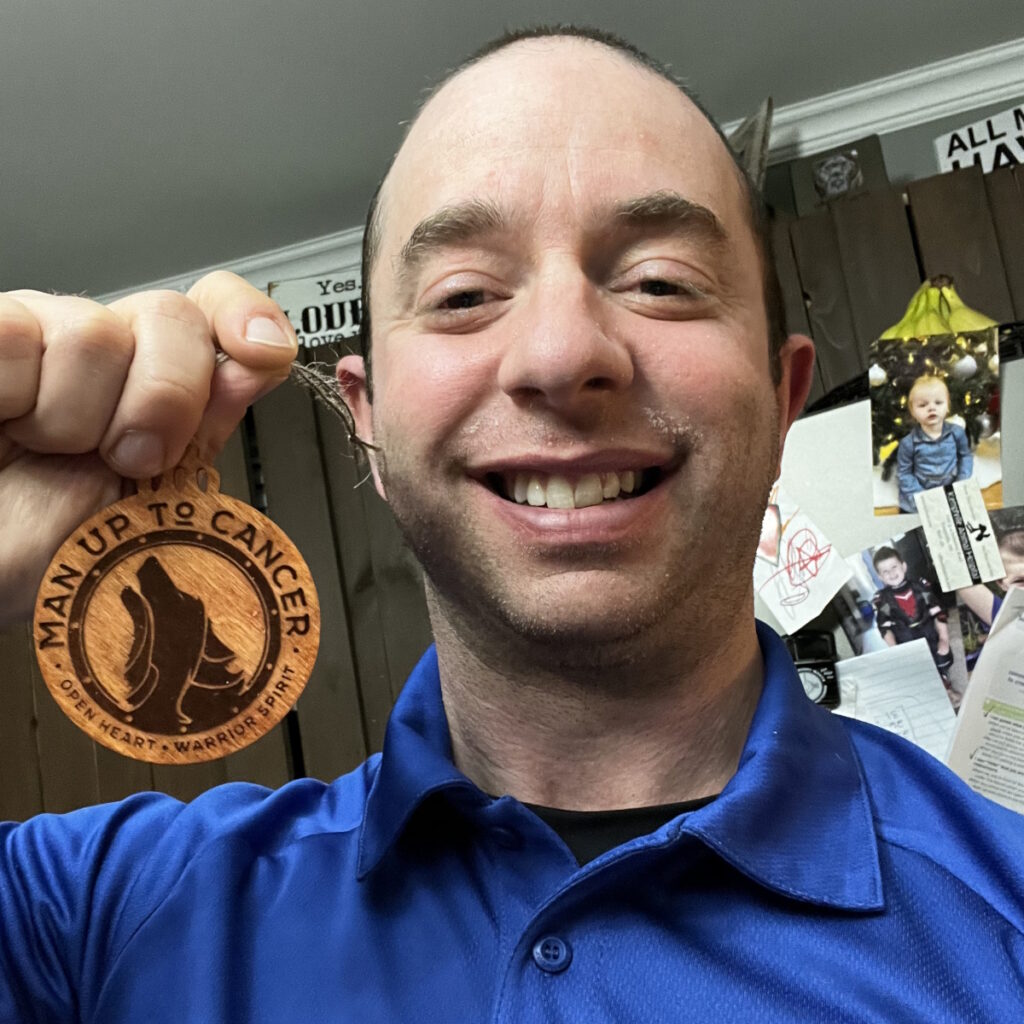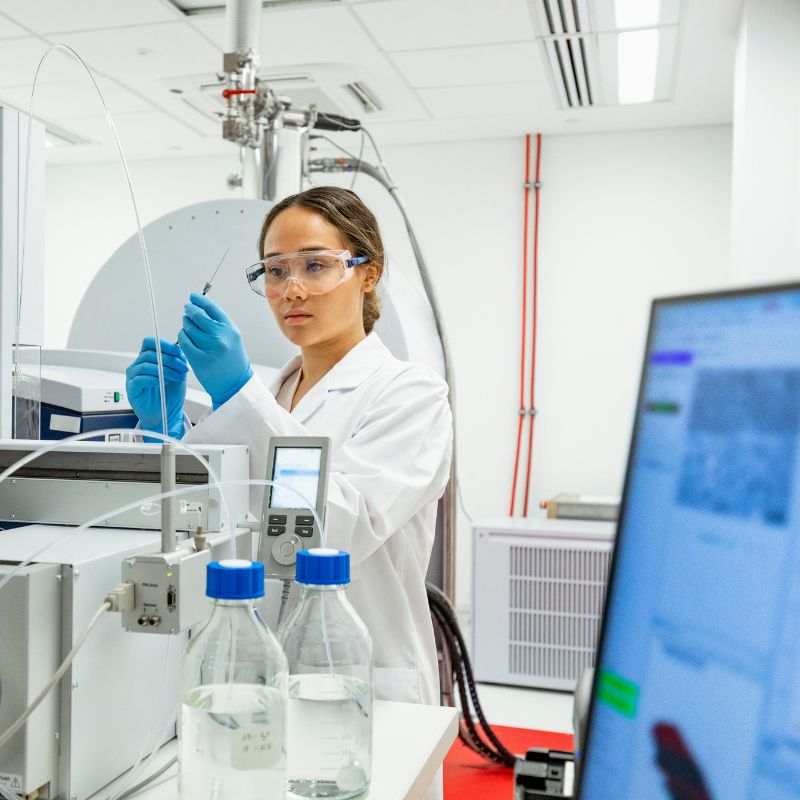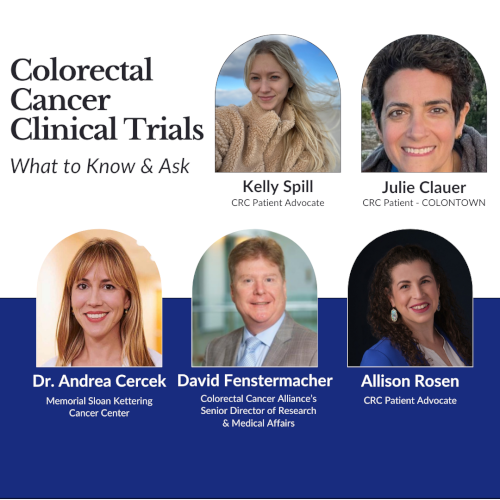10 Colorectal Cancer Tips from Our Community

If you’re coming from our survey – we thank you! Discover real-world colorectal cancer tips from patients. Through their personal journeys, you’ll discover invaluable insights into symptoms, diagnosis, and treatment options.
These tips come from the real-life experiences of our members who have bravely shared their stories. For more detailed insights and personal narratives, you can explore their stories in full below.
1. Be Proactive in Your Diagnosis and Treatment. Ask questions. Do research. Find others with your diagnosis. Do all of this to prepare so you can actively participate in your treatment plan and understand each step to feel more empowered.

Lindsay’s story highlights the crucial role of being one’s own advocate in the treatment process. She emphasizes the importance of fighting for oneself, especially when symptoms are initially dismissed or misdiagnosed. Read more.
2. Seek Support and Accompaniment at Appointments. Having someone with you during appointments can provide emotional support and help remember important information.

Amanda took her friend with her during an appointment to discuss her pathology report. She recounts feeling terrified and overwhelmed, but the presence of her friend during this intense moment helped her process the information and cope with her emotions. Read more.
3. Understand the Impact of Surgery and Recovery. Be prepared for the physical and emotional impacts of surgeries like colectomies and the recovery process afterward.

Shelley’s surgeon explained her colectomy’s unpredictability and potential for complications like needing an ostomy bag. Her experience underscores the importance of understanding and preparing for the complexities of cancer surgery and its aftermath. Read more.
4. Learn About Your Chemotherapy Regimen. Specifically, understand the details of your chemotherapy, including the drugs used and how they are administered, as well as their resulting side effects.

Jason underwent six months of FOLFOX chemotherapy, consisting of 12 treatments. He shares the significance of his chemo education at the cancer center, which involved learning about the regimen and deciding between a PICC line or a port for treatment. Read more.
5. Manage Side Effects Proactively. Be prepared to manage side effects like hair loss, neuropathy, mental confusion and the impact of take-home pumps, and adjust your lifestyle accordingly.

Barbara details the physical and emotional challenges of her chemotherapy regimen and its side effects. Her story highlights the importance of preparing for what may come, as well as adjusting one’s lifestyle to not only cope with them but also stay safe. Read more.
6. Consider Genetic Testing and Targeted Therapies. Explore the option of genetic testing to determine if targeted therapies might be effective for your specific type of colorectal cancer.

You might be wondering what genetic testing involves and how it can help. Targeted therapies based on biomarkers represent the evolving landscape of cancer treatment, where personalized medicine plays a key role in providing care. Read more.
7. Stay Informed About Advances in Treatment. Keep up-to-date with the latest research, treatment advances, and clinical trials. These can significantly change the course of your treatment and prognosis.

This article and supporting videos are packed with information on clinical trials. It’s important to collaborate with your cancer team to research suitable trials. Keep an open mind and don’t be afraid of the fact that it’s research. Read more.
8. Get support for the Emotional and Mental Impact. Acknowledge and address the emotional and mental challenges that come with a colorectal cancer diagnosis and ongoing treatment.

Allison highlights how she sought psychological support by connecting with other patients who would understand. Additionally, she reflects on the need to express emotions, and her worry that suppressing her fear and stress could have adversely affected her treatment and recovery process. Read more.
9. Prioritize Nutrition and Physical Health. Focus on maintaining a balanced diet and regular physical activity. Doing these can help manage symptoms and improve overall well-being during treatment.

Our chemotherapy diet post guides cancer patients through the importance of nutrition during challenging times. A balanced diet may help alleviate symptoms and enhance overall well-being during treatment. The nurturing power of food and thoughtful dietary choices can support recovery. Read more.
10. Plan for the Long-Term Journey. Recognize that living with colorectal cancer is a long-term journey. Regular monitoring, managing side effects, and adapting to changes in health and lifestyle are all equally important.

Michelle exposes the long-term journey of living with colorectal cancer as well as the complexities of regular monitoring and adapting to changes in health and lifestyle. It provides an informative yet hopeful perspective on navigating the prolonged challenges and adjustments necessary for those with colorectal cancer. Read more.
Remember, the colorectal cancer tips presented above are taken from the stories of our members and are, therefore, not medical advice. Please consult with your healthcare provider for all of your medical and treatment decisions.
2023 Review of Our Top 5 Colorectal Cancer Stories
Browse Our full Collection of Colorectal Cancer Stories
Kailee O., Colorectal Cancer, Stage 4 (Metastatic)
Symptoms: Sensitive stomach sometimes leading to vomiting after eating, bleeding during bowel movements, persistent fatigue, back pain, abdominal pain, anemia, significant symptom flare-up during second pregnancy
Treatments: Surgery (colectomy), chemotherapy, targeted therapy
Starr S., Colon Cancer, Stage 4 (Metastatic)
Symptom: Abdominal pain
Treatments: Chemotherapy, surgeries (colectomy, hepatectomy, lymphadenectomy), targeted therapy
Jackson L., BRAF Mutation Colon Cancer, Stage 4
Symptoms: Severe stomach pain, fatigue, lack of motivation, anemia, blood in stool, thinning stool
Treatments: Surgeries (emergency bowel obstruction surgery with temporary colostomy, possibility of HIPEC in 2026), chemotherapy, immunotherapy
Heather C., Colon Cancer, Stage 4 (Metastatic)
Symptoms: Severe bloating, indigestion, vomiting, rectal bleeding
Treatments: Chemotherapy, surgery (liver transplant, upcoming)
Nicole S., Colon Cancer, Stage 3
Symptoms: Dull lower abdominal pain that sharpened and was focused on the lower left side, appearance of dark blood in stool, difficulty retaining food due to near-complete blockage of sigmoid colon
Treatments: Surgery (colectomy), chemotherapy
Ian D., Colon Cancer, Stage 3C
Symptoms: Fatigue, unusual blood test results during annual physical, blood in stool
Treatments: Surgery (partial colectomy), chemotherapy, clinical trial






